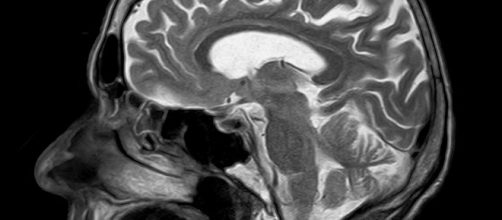Magnetic resonance imaging (MRI) scans are painless, but for the patient waiting for the scan to reveal potential health issues, the emotional strain can be simply terrible. Many patients discuss their fears on Twitter.
Angela, a fifty-four-year-old patient told this reporter that she dreaded the day of her appointment. She had been through surgery and radiation for cancer and the scan was going to reveal whether further treatment would be necessary.
“I got to my appointment and I was shaking inside,” she said, “I felt like I could not breathe. It was very, very scary.
Then I had to wait for the report, which I was told to take to my own oncologist. Of course, I read it. I did not understand much, but I just needed to know. It was all the waiting and the dread that got to me.”
Apart from the stress of knowing the scan might turn up some bad news, the MRI process involves confinement in a tight space. On top of this, the patient may not move or fidget. Of course, this is immediately what the body wants to do. Angela said, “Every muscle feels as though it just has to explode with energy...Now!” The noise of the machine is alien to us and the outcomes of the scan, while fascinating in their detail, can be very bad news.
It is only natural, therefore, that people who face MRI’s are talking about the experience with their online friends.
Johnathan Hewis, MSc, PgCert (LTHE), PgCert (BE), BSc Hon, at the Austrian University, Charles Sturt, investigated tweets over a full month that related to MRI’s. He analyzed 464 tweets on Twitter.
The Tweets were then divided into those that related to the initial MRI scan appointment, the actual experience and the outcomes or diagnosis. The outcome of the study showed that a lot of anxiety is out there amongst patients. Hewis said that these findings give medical practitioners “an appreciation of anxiety,” and that this is an "important clinical consideration.”
The study showed that patients were talking about their thoughts regarding the whole process. Some of these were related to cost and others involved friends and family tweeting support, prayers and love.
Support is important and as Angela said to me, it is not a particularly pleasant environment and knowing my husband was waiting for me was a comfort. My sister was sending me messages right up until I went in which helped me endure the process. In the study, one tweet was found that said that having an MRI scan is, “like being inside a pissed off fax machine!”
Another interesting and easily remedied point raised in tweets was the fact that patients would like to choose their own music for the duration of the scan.
Hewis used Twitter for the basis of his study because of the giant reach it has. Figures show that in 2014, 19% of the entire adult population of the USA was using the social site to communicate.
For doctors and other medical professionals, this was an interesting and informative way to find out what is going on in the minds of MRI patients.
There have been other studies carried out using participating recruitment methods but as Hewis pointed out, this particular study does show that Twitter is potentially a “viable platform” for conducting research in patient experience.
NEW ZEALAND'S JONAH LOMU, THE FIRST TRULY GLOBAL RUGBY SUPERSTAR HAS DIED
EBOLA SURVIVOR BEATS THE ODDS TWICE AND GIVES BIRTH TO MIRACLE BABY

